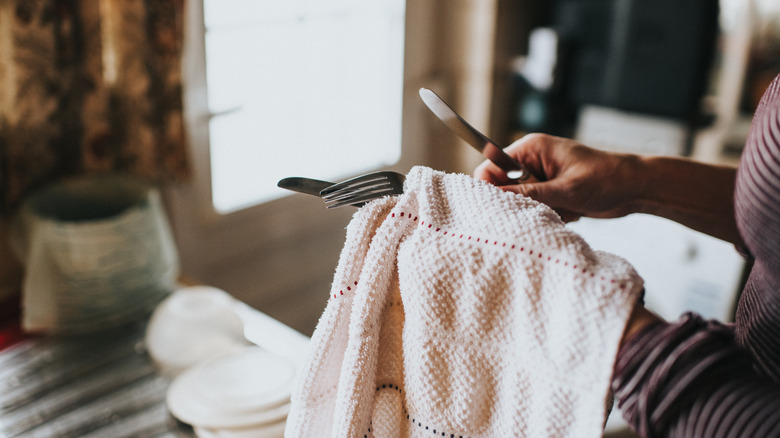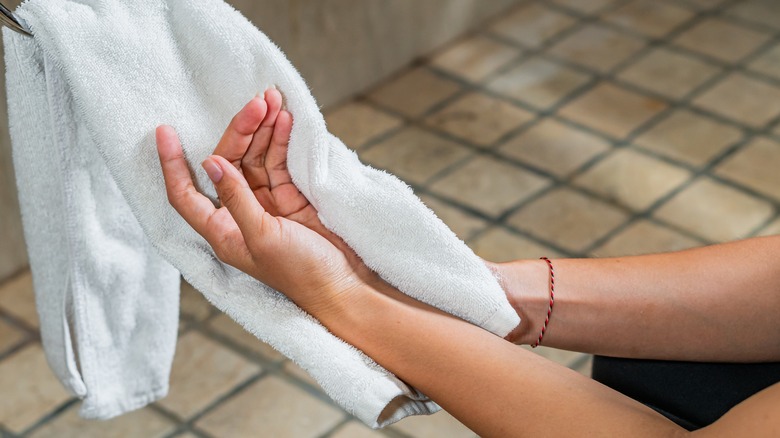If You Make This Mistake After Washing Your Dishes, They're Probably Pretty Nasty
It's likely you'd be upset if you washed your dishes and someone immediately came and slathered food or dirt all over them. Well, that's more or less what many of us have been doing each time we use a hand towel to dry our clean dishes. It turns out that hand towels have a lot in common with the nastier parts of the fridge. Which is to say, they're a cozy little haven for dangerous and disgusting bacteria.
Dish towels, unsurprisingly, are absorbent and typically made with a material that has texture; allowing it to hold even more moisture. That's great for being a towel, but not-so-great because the moisture held within the towel creates a nice, dank environment for Salmonella, E. Coli, and Staphylococcus aureus. Each of these can cause symptoms ranging from nausea and vomiting to low blood pressure and dehydration. Hand towels are some of the most contaminated contact surfaces in the kitchen since the towel being used to soak up water, dry your hands, and dry the dishes is all the same bit of fabric. Like most daily use items, it might not be possible to fully eliminate the risk of bacterial growth, but you can certainly mitigate it.
How to reduce the risk of bacteria on towels
A simple kitchen cleaning magic trick for keeping bacterial growth on hand towels to an absolute minimum is to use more towels. Use one towel for hand drying, one towel for dish drying, and so on. Separate the towels however you see fit. If you have towels with farm animals on them, you can designate a specific animal for each task. If you have basic, colored towels, use a color-coded system — just don't forget what towel goes where.
Make sure you're cleaning towels correctly and often. Dish towels should be washed or replaced with a fresh batch relatively frequently (every week or so). If you make it a part of your nightly kitchen shutdown cleaning routine, it'll become a habit in no time. Wash the towels in hot water with other towels, but don't let them sit in the washing machine as that's the perfect space for more bacteria to grow. Another way to lower the risk of finding nasty towels in your kitchen is to hang them in such a way that they can more easily dry out between uses. Try not to fold up the towel or toss it somewhere random on the countertop. If you have a gross towel, just toss it in the wash and opt for a new, clean towel. Between uses, spread them out and hang them somewhere (the oven door handle is an excellent choice).

